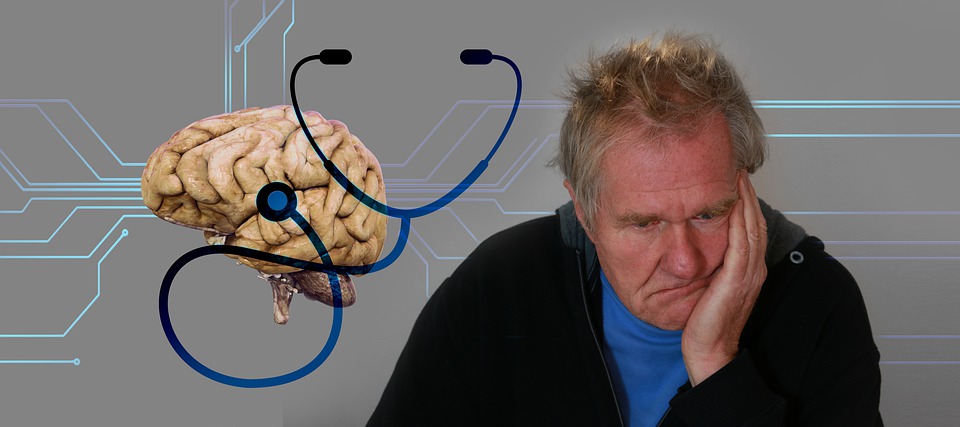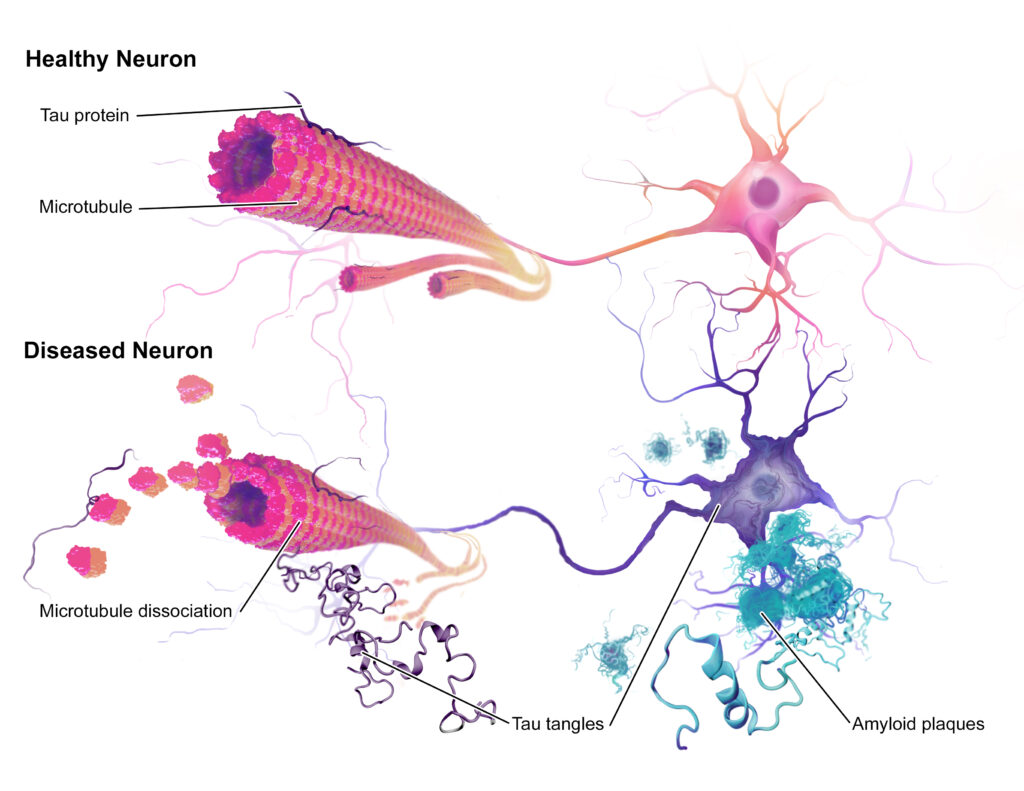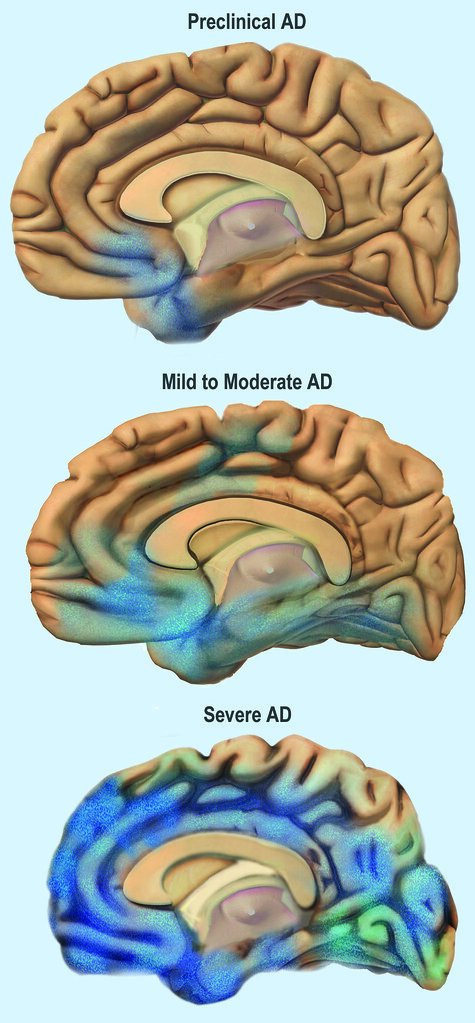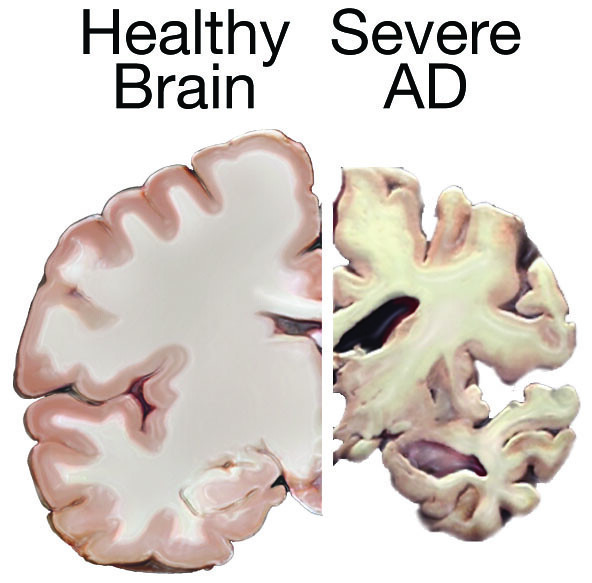Introduction
Alzheimer’s disease is a progressive and degenerative brain disorder that affects millions of people worldwide. It is the most common cause of dementia and affects memory, thinking, and behavior. The disease is characterized by the slow decline of cognitive function, including memory loss, difficulties with problem-solving, and communication. Over time, the symptoms of Alzheimer’s disease become more severe and can interfere with daily activities, eventually leading to a complete loss of independence.

The exact cause of Alzheimer’s disease is unknown, but scientists believe that a combination of genetic, environmental, and lifestyle factors may contribute to the development of the disease. While there is currently no cure for Alzheimer’s disease, there are treatments and therapies available to help manage the symptoms and improve quality of life.
Early diagnosis and management of Alzheimer’s disease is crucial for improving patient outcomes. The primary goal of treatment is to manage symptoms and maintain cognitive function for as long as possible. This can be achieved through a combination of medications, lifestyle changes, and support from family and caregivers.
Definition
It is a progressive and degenerative disorder of brain which effects memory, thinking and behavior . It is the most common cause of dementia and is characterized by the slow decline of cognitive function, including memory loss, difficulties with problem-solving, and communication.

Over time, the symptoms of Alzheimer’s disease become more severe and can interfere with daily activities, eventually leading to a complete loss of independence. The exact cause of the disease is not yet fully understood, but is thought to involve a combination of genetic, environmental, and lifestyle factors.
Causes
The exact cause of Alzheimer’s disease is not yet fully understood, but researchers believe it is likely due to a combination of genetic, environmental, and lifestyle factors. Some of the most commonly cited causes and contributing factors include:

- Age: Alzheimer’s disease is most commonly diagnosed in people over 65, and the risk of developing the disease increases with age.
- Genetics: A family history of Alzheimer’s disease can increase a person’s risk of developing the condition. Mutations in certain genes, such as the APOE gene, have been linked to an increased risk of developing Alzheimer’s disease.
- Lifestyle factors: Some research suggests that lifestyle factors, such as a poor diet, lack of physical activity, and chronic stress, may increase the risk of developing Alzheimer’s disease.
- Chronic health conditions: Chronic health conditions, such as high blood pressure, diabetes, and heart disease, may increase the risk of developing Alzheimer’s disease.
- Brain injury: Traumatic brain injury or repeated head trauma has been linked to an increased risk of developing Alzheimer’s disease.
It’s important to note that having one or more of these risk factors does not guarantee that a person will develop Alzheimer’s disease. Additionally, many people with Alzheimer’s disease may not have any known risk factors.
Clinical features
Alzheimer’s Disease is a progressive neurodegenerative disorder characterized by the following clinical features:

- Memory loss: Early and persistent impairment of short-term memory is one of the most common symptoms.
- Cognitive decline: Difficulty with language, disorientation, confusion, and problems with planning and organizing.
- Changes in behavior and mood: Agitation, depression, irritability, and personality changes are common.
- Visual-spatial problems: Difficulty with perception, spatial orientation, and visuospatial abilities.
- Impairment of daily activities: Patients may have difficulty with activities of daily living, such as dressing, eating, and personal hygiene.
- Loss of initiative: Decreased interest in socializing and pursuing activities, apathy and loss of motivation.
- Progressive worsening of symptoms: Alzheimer’s Disease typically worsens over time, leading to a decline in all cognitive, behavioral, and functional abilities.
These symptoms may be accompanied by other medical conditions such as cardiovascular disease, diabetes, and sleep disturbances, which can exacerbate cognitive decline.
Management
The management of Alzheimer’s Disease is primarily focused on symptomatic relief and support for the patient and caregiver. There is currently no cure for Alzheimer’s Disease, but the following interventions may help to manage symptoms:

- Medications: Cholinesterase inhibitors and memantine are commonly prescribed to slow down the progression of symptoms and improve cognition, memory, and overall function.
- Non-pharmacological therapies: Cognitive stimulation therapies, physical exercise, and social activities can help to improve quality of life and maintain cognitive and functional abilities.
- Nutritional and physical health: Proper nutrition and regular physical activity can improve overall health and may help to slow down the progression of the disease.
- Caregiver support: Providing support and resources for caregivers can help to alleviate the stress and burden associated with caring for a loved one with Alzheimer’s Disease.
- Advance care planning: Planning for the future, including financial and legal planning, can help to ensure that the needs and preferences of the patient are met as the disease progresses.
It is important to work with a healthcare provider to develop an individualized management plan based on the specific needs and stage of the disease.
Prevention
There is currently no sure way to prevent Alzheimer’s Disease, but the following factors have been shown to be associated with a reduced risk:

- Exercise: Regular physical activity has been shown to reduce the risk of developing Alzheimer’s Disease and may also slow down its progression.
- Diet: A healthy diet, particularly one rich in fruits, vegetables, and healthy fats, has been associated with a reduced risk of Alzheimer’s Disease.
- Mental stimulation: Engaging in mentally stimulating activities, such as reading, playing games, and solving puzzles, has been shown to reduce the risk of Alzheimer’s Disease.
- Social engagement: Maintaining strong social connections and staying socially active has been linked to a reduced risk of Alzheimer’s Disease.
- Control of cardiovascular risk factors: Managing high blood pressure, high cholesterol, and other cardiovascular risk factors has been shown to reduce the risk of developing Alzheimer’s Disease.
It is important to note that these factors may also have other health benefits and should be part of a healthy lifestyle regardless of their potential impact on Alzheimer’s Disease. Additionally, while these factors have been associated with a reduced risk, they do not guarantee that Alzheimer’s Disease will not develop.
Watch more stories about latest trending Health Topics !
Risk factors
Alzheimer’s disease is a progressive neurodegenerative disorder that affects memory and cognitive abilities. The exact cause of Alzheimer’s is unknown, but several factors can increase a person’s risk of developing the disease, including:

- Age: The risk of Alzheimer’s increases as a person gets older, especially after the age of 65.
- Family history: A person with a family history of Alzheimer’s is at a higher risk of developing the disease.
- Genetics: Certain genetic mutations can increase the risk of developing Alzheimer’s, such as the presence of the APOE-e4 gene.
- Head injury: A history of traumatic brain injury can increase the risk of developing Alzheimer’s.
- Cardiovascular disease: People with cardiovascular disease, such as high blood pressure or stroke, have a higher risk of developing Alzheimer’s.
- Lifestyle factors: Poor diet, lack of exercise, smoking, and high alcohol consumption have been linked to a higher risk of developing Alzheimer’s.
It’s important to note that these are only risk factors and do not guarantee that a person will develop Alzheimer’s. Progression of this disease can be slowed down by early diagnosis and treatment.
Treatment
The treatment of Alzheimer’s disease involves managing symptoms and slowing the progression of the disease. Currently, there is no cure for Alzheimer’s, but there are several treatment options available, including:

- Medications: Several medications can help with the symptoms of Alzheimer’s, such as donepezil, rivastigmine, and galantamine, which can improve memory and cognitive abilities.
- Psychotherapy: Psychotherapy can help manage behavioral and psychological symptoms of Alzheimer’s, such as depression, anxiety, and agitation.
- Support and education: Support groups and educational programs can provide emotional support and practical information to people with Alzheimer’s and their caregivers.
- Lifestyle changes: Making lifestyle changes, such as staying physically and mentally active, eating a healthy diet, and maintaining a healthy weight, can improve symptoms and overall well-being.
- Non-Pharmacological Therapies: Engaging in activities like music therapy, art therapy, and pet therapy can have positive effects on symptoms of Alzheimer’s.
It’s important to work closely with a healthcare provider to determine the best treatment plan, as the progression and symptoms of Alzheimer’s can vary from person to person. Additionally, treating related medical conditions and addressing any underlying causes can help manage the symptoms of Alzheimer’s.
Summary
Our blog provides a complete guide to Alzheimer’s disease, including its causes, symptoms, and latest developments in diagnosis and treatment. With a focus on the impact of Alzheimer’s on patients and caregivers, the blog covers emotional and mental health, caregiving strategies, and lifestyle factors.

Stay informed with expert analysis, patient and caregiver stories, and essential resources for coping and planning. Whether you’re affected by Alzheimer’s or simply want to learn more about this complex condition, our blog offers a comprehensive introduction for better understanding.
In addition to providing information and resources, our blog also highlights the importance of early detection and proper management of Alzheimer’s disease. Through discussions on early onset Alzheimer’s, advance directive planning, and long-term care options, we aim to help individuals and families prepare for the challenges that come with this condition.
Our goal is to empower individuals with knowledge and support to help them live their best lives, despite the difficulties of Alzheimer’s disease. Join our community and stay informed about the latest developments in Alzheimer’s research and care, and discover ways to improve the quality of life for those affected by this condition.
